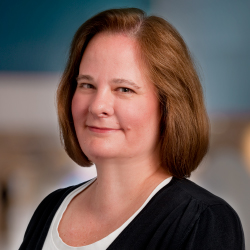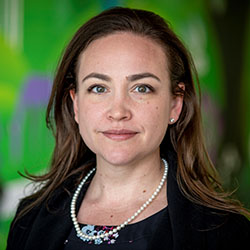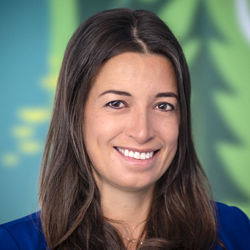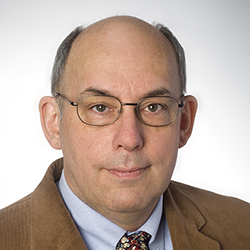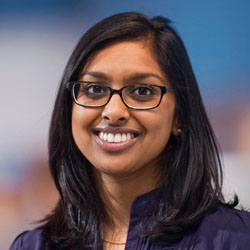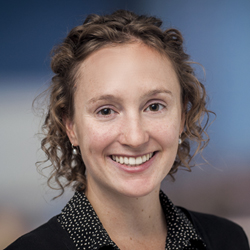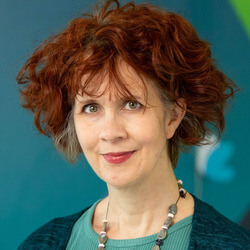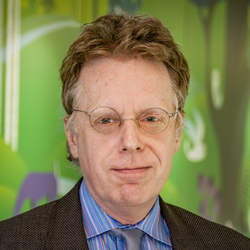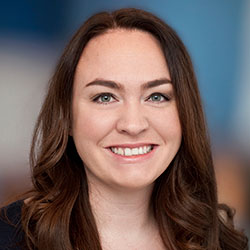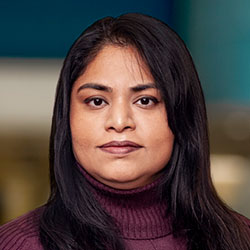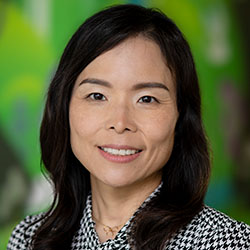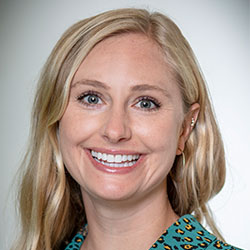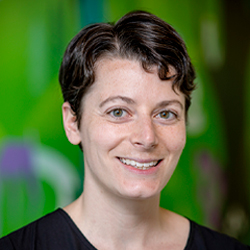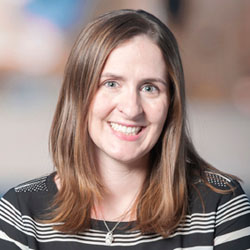Headache Program
What is Seattle Children’s Headache Program?
Our Headache Program treats children and teens with frequent headaches. Headaches in children may have different causes and need different treatment than in adults. Our team has years of training and experience in treating children and teens with headache problems. We understand the unique needs of children and teens, whose bodies and brains are still developing.
Headaches are very common in children and teens. Often, you can treat them at home or manage them with the help of your primary care provider. But your child or teen may need expert help if their headaches:
- Make it difficult to attend school or take part in normal activities — even when they take medicine like ibuprofen or acetaminophen when the headache starts
- Continue even after addressing triggers like lack of sleep, stress, poor diet or not drinking enough water (dehydration)
Signs that a headache needs urgent care
Rarely, headaches can be the sign of a serious brain problem that needs urgent evaluation. If your child has these “red flag” symptoms, contact your care provider right away:
- Headache that repeatedly wakes them in the middle of the night or occurs first thing in the morning with vomiting
- Headache with weakness in the arms or legs or with facial drooping
- A sudden, very intense headache
- Changes in walking, speech or balance, along with a headache
The most common kinds of headaches in children and teens are migraines and tension-type headaches. They are not dangerous but can be very painful and cause children to miss school and other activities. Learn more about headache symptoms and what to do.
Why choose Seattle Children’s Headache Program?
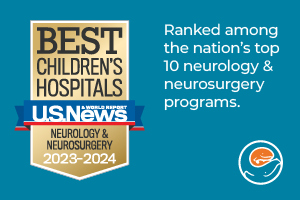 We bring together an expert team to diagnose and treat your child’s headaches. We provide the most up-to-date and evidence-based therapies.
We bring together an expert team to diagnose and treat your child’s headaches. We provide the most up-to-date and evidence-based therapies.
Our program is part of Seattle Children’s Neurosciences Center, which ranks among the nation’s best.
We plan your child’s treatment based on years of experience and the newest research on what works best — and most safely — for children.
-
The experts you need for comprehensive care
Many factors can affect your child’s headaches, so it’s important to get care from a team like ours with experts in different specialties. Our providers specialize in headache management for children. We work together — and with you — to care for your child.
Our team includes doctors called neurologists, pain psychologists and advanced practice providers (APPs) with special training and experience in treating children with headaches. All of our doctors are University of Washington faculty.
If needed, we refer your child to experts in other fields. These include:
- Social workers
- Ear-nose-and-throat (ENT or otolaryngology) doctors
- Physical therapists
- Occupational therapists
- Behavioral health therapists
- Dietitians
- Eye doctors (ophthalmologists)
- Adolescent medicine specialists
- Sleep specialists
- Psychiatrists
-
State-of-the-art treatment for migraines and other headaches
We provide the treatment that is right for your child. We offer:
- Recommendations for lifestyle changes
- A wide range of medicines and supplements to prevent and treat headaches, including calcitonin-gene related peptide (CGRP) targeted migraine treatment
- Botox injections for chronic migraine
- Using numbing solution to ease pain from headache ( and )
- Nerve stimulation devices to prevent and treat headaches
- Referrals to other specialists as needed, such as biofeedback therapy or mental health counseling
- Parent skills training
- School support
- Care coordination
For children and teens with headache syndromes that cause disabling pain despite other treatments, we offer cognitive behavioral therapy for pain management in our specialized Multidisciplinary Headache Clinic.
-
Coordinated care close to home
- Seattle Children’s Headache Program offers 5 convenient locations: North Clinic in Everett, Hospital campus in Seattle, South Clinic in Federal Way, Bellevue Clinic and Surgery Center and Olympia Clinic.
- Some services are available via telehealth.
-
Research and clinical studies to advance care
- Our providers lead research studies that aim to understand causes, improve care and find cures for frequent headaches.
- We take part in registries that collect data about patients to help us learn more and improve treatments.
- Children and teens we treat have access to promising new treatments offered only in research studies. These are called clinical trials.
- See our clinical trials for children and teens with recurring headaches.
-
Support for your whole family
- Each child is different, and you know your child best. We work with you to give your child complete care. Members of our team have special training in their field and in the unique needs of children and teens with headache.
- We serve toddlers through young adults from around the Northwest and beyond. If your family speaks a language other than English, we have interpreters in many languages, including sign language, to help you get the care your child needs.
- If headaches are causing your child to miss school, we support you in getting accommodations to reduce the impact of headache on their school success.
- Seattle Children's can help with financial counseling, schooling, housing, transportation, interpreter services and spiritual care. Read about our services for patients and families.
Types of Headaches We Treat
We treat children and teens with all kinds of headaches. The most common types of headaches in children and teens include:
- Tension-type headache: The pain is usually mild to moderate and feels like pressure or a band squeezing the head. This is the most common type of frequent headache in children.
- Migraine headache: These very painful, throbbing headaches keep your child from doing normal activities. The pain of migraine is most often in the front or sides of the head. Your child may have nausea or vomiting and be sensitive to light and sound during a migraine. Migraines often run in families (genetic), but your child may be the first in the family to have them. Most often, migraines happen less than 4 days per month. Some children and teens have headaches more than 15 days per month. This is called chronic migraine. Our team is very experienced in helping children and families manage all kinds of migraine headaches.
- Post-traumatic headache: Some children have headaches after head trauma, like concussion. Most often these headaches go away after a few weeks. In some children they may last much longer and require treatment.
- New daily persistent headache (NDPH): This is a new headache that starts suddenly in a child or teen without previous headaches and then does not go away, so a headache is present every day. Triggers include illness, trauma or stress, but often there are no obvious triggers. Children with this type of headache should have a thorough evaluation to make sure there is no other cause of the headache. Treatment may be similar to treating chronic migraine.
-
Headache triggers
Many things can trigger a headache or make things worse, such as:
- Genetics (family history of migraine)
- Poor sleep
- Not drinking enough water (dehydration) or poor nutrition
- Stress at school or home
- Anxiety, depression and trauma symptoms
- Learning disabilities such as trouble with reading, writing or math
- Problems with attention, concentration and organization
- Other medical concerns (like anemia, thyroid problems or rheumatological disorders)
- Dental problems
- Concussion
- Pregnancy
- Drug or alcohol abuse
- Pain in neck muscles, such as from slouching over a laptop or other screen
- Medicines like stimulants or antibiotics (tetracyclines)
You can help your child prevent headaches by avoiding triggers like lack of sleep, skipping meals or too much screen time. Mental health problems do not cause headaches, but anxiety, depression and attention problems are common in children and teens with headache. Working with a licensed mental health counselor in your community to treat anxiety, depression or other mental health concerns can help make your child’s headaches easier to manage.
For more information, see our handout Headache Help for Your Child or Teen (PDF) (Russian) (Spanish)
Services and Treatments We Provide
We provide these services for children and adolescents with all types of headaches. We see children with disabling headache syndromes that don’t go away (intractable) in our Multidisciplinary Headache Clinic.
-
Thorough diagnosis
- Identifying the cause of your child’s headaches is important to providing the right treatment. We ask you and your child about their headaches to learn about the timing, pain level, lifestyle habits and any treatments you have tried.
- Before your child’s visit, we ask them to keep a headache diary. This helps identify patterns or triggers for headaches, such as sleep problems, dehydration, poor diet and stressors. That information helps us choose the best treatment for your child.
- Rarely, headaches are caused by underlying problems like a brain tumor or a build-up of fluid in the brain (hydrocephalus). Depending on your child’s symptoms, we may do imaging studies. When we need neuroimaging, most often we do a brain MRI (magnetic resonance imaging) to avoid radiation and to get a detailed image. For certain conditions, we may need to do a CT (computed tomography) scan.
- We may test your child’s blood if your provider thinks the headaches could be related to a medical problem like anemia or thyroid disease.
-
Supplements
Certain vitamins, minerals, enzymes or herbal remedies may help prevent headaches. These work best when your child or teen takes them every day. It may take up to 3 months of regular daily use to get the best results. Use these treatments only if your healthcare provider recommends them.
-
Medicines — including Botox injections
- Sometimes children need to take medicine to prevent or stop headaches. We work with your child to find the medicine that works best for them with the fewest side effects.
- Rescue medicine is taken to stop a headache once it starts. This type of medicine is also called “acute medicine” or “pain reliever.” Options include over-the-counter (OTC) nonsteroidal anti-inflammatory drugs (NSAIDs) and a range of prescription medications. If your child’s migraines cause vomiting, we may prescribe medicines to ease nausea.
- Preventive (prophylactic) medicine is taken to prevent headaches from starting and to reduce how severe they are and how often they happen. We tailor the treatment to your child.
- If standard treatments are not effective and migraines happen more than half the days of the month for more than 3 months, we may consider injections of Botox into 30 or more spots on your child’s head, neck and shoulders to ease the pain. This may help to stop the nerves from carrying pain messages to the brain.
- In a peripheral nerve block for headache, a neurology provider injects a small amount of numbing solution over specific nerves in the head or neck related to headache.
- A sphenopalatine ganglion (SPG) block applies numbing solution near a group of nerve cells behind the nose (called sphenopalatine ganglion or SPG). Your healthcare team teaches your child or family member to use a numbing solution in the nose to reach the SPG. This helps relieve headache pain without an injection. Read about intranasal lidocaine for headaches.
- For teens with severe migraines that have not responded to standard treatments, we may also consider newer medications that target a protein (called CGRP, which stands for calcitonin gene-related peptide) linked to migraine symptoms.
- Read about medication options in Headache Help for Your Child or Teen (PDF) (Russian) (Spanish)
-
Neuromodulation devices
Newer treatments for migraine headaches include devices that use electrical or magnetic pulses to affect how the nervous system responds to pain signals. These are called neuromodulation devices for headache. They have the benefit of avoiding side effects that sometimes happen with medicines.
-
Biofeedback
Biofeedback therapy helps children, teens and young adults learn how to control their body’s response to pain and stress. While wearing sensors that show vital signs like heart rate, we have your child practice breathing exercises and other relaxation techniques. They will learn to regulate their muscle tension, heart rate, skin temperature and other body functions to decrease chronic headache pain.
-
Multidisciplinary Headache Clinic
This specialized clinic is for children and teens with disabling headache syndromes that don’t go away (intractable) who are referred by a Seattle Children’s neurology provider. In a single visit, your child will meet with a pain psychologist, doctor and nurse who all specialize in headache management.
Through cognitive behavioral therapy for pain management, you and your child learn ways to help control their headache and its impact on daily life. This can include training in:
- Relaxation methods (deep breathing, progressive muscle relaxation, guided imagery and mindfulness)
- Cognitive strategies
- Problem-solving skills
- Parenting techniques to help your child better control their headache symptoms and have an easier time taking part in their daily activities even when they do not feel their best
Our pain psychologist tailors these methods to your family and your child's needs.
-
Support for your child at school
We support you in getting accommodations for your child or teen at school to reduce the impact of headaches on their school success. This may include:
- Access to a quiet, dark place for rest
- A process for getting notes and assignments for missed classes
- Excused absences for severe migraines
- The ability to leave noisy or bright environments without penalty
Ask your provider about getting a letter for 504 accommodations for migraine headaches.
For resources to help your child get the most from their education, see Migraine At School.
Scheduling an Appointment With the Headache Program
- Your child or teen may need expert help if their headaches continue despite addressing common triggers (like lack of sleep, food or water) and taking the right dose of pain relievers when their headache starts.
- If you would like to receive care from our Headache Program, ask your child's primary care provider to refer you.
- If you already have a referral, please contact us at 206-987-2078 to schedule an appointment.
- If you have an appointment, see what to expect and how to prepare.
- Learn about resources for patients and families such as useful links, videos and recommended reading for you and your family.
- Providers, see how to refer a patient.
Who’s on the team?
We bring together a team of experts in different specialties to care for your child.
Teams
Neurologists
Advanced practice providers
Nurses
-
Shaun M. Hadley, RN
-
Taylor New, RN
-
Jenna Noebel, BSN, RN
-
Jenine Rittierodt, BSN, RN, CCM
-
Abigail Whitehead, RN
-
Joanna Yoder, RN, CCM
Resources for Patients and Families
Resources for Healthcare Professionals
- Headache Assessment: General Guidelines for Referring Providers
- Headache Management in Primary Care: A Q&A With Dr. Heidi Blume
- Migraine: Clinical Pathway
- Migraine Algorithm
Contact Us
For more information, contact us at 206-987-2016. If you would like an appointment, ask your child’s primary care provider to refer you.
Providers, see how to refer a patient for evaluation of headaches that:
- Are causing disability despite adequate trials of rescue medications such as ibuprofen or acetaminophen
- Have not responded to a trial of adequate sleep, regular diet and good hydration (at least 60 oz. of fluid per day for teens)
Telemedicine at Seattle Children’s
You may be offered a phone or video appointment (telehealth). Learn more.
Paying for Care
Learn about paying for care at Seattle Children's, including insurance coverage, billing and financial assistance.
